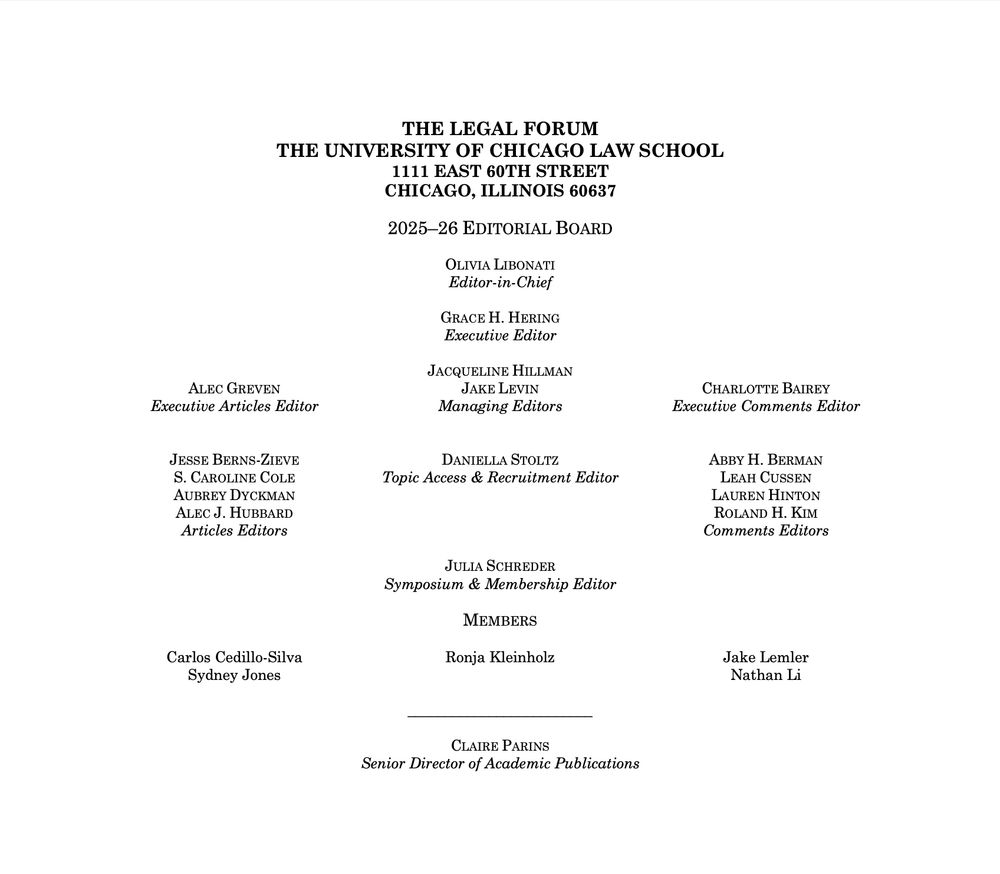



Authority, Oversight, and Accountability
Authority, Oversight, and Accountability

My piece on "War Powers and the Return of Major Power Conflict" is available here: legal-forum.uchicago.edu/print-archiv...
You can also find all the pieces as they appear in print on Chicago Unbound: chicagounbound.uchicago.edu/uclf/
My piece on "War Powers and the Return of Major Power Conflict" is available here: legal-forum.uchicago.edu/print-archiv...
You can also find all the pieces as they appear in print on Chicago Unbound: chicagounbound.uchicago.edu/uclf/
You can also find all the pieces as they appear in print on Chicago Unbound: chicagounbound.uchicago.edu/uclf/

